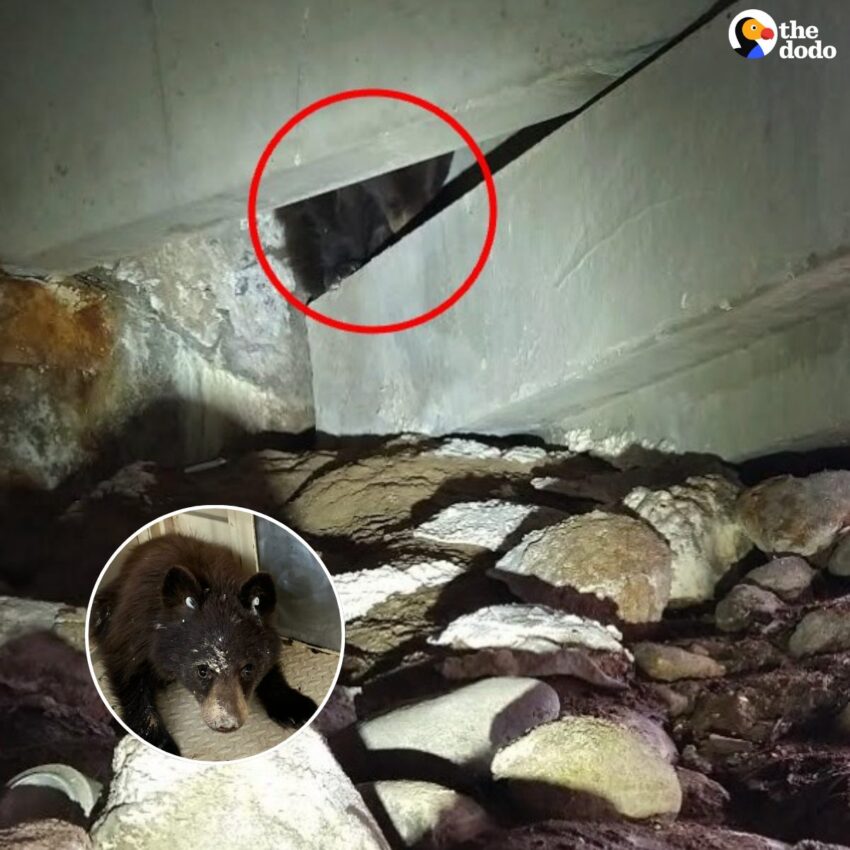He was all tucked away in a little corner …
Last month, workers at the St. Francis Hospital in Colorado Springs, Colorado, were shocked to find a baby black bear in their employee parking lot. Knowing the bear needed help, a hospital security guard quickly called Colorado Parks & Wildlife (CPW).
When Aaron Berscheid, a district wildlife manager for CPW’s Southeast Region, arrived at the scene, he didn’t see the bear at first. After searching around for a bit, he caught a glimpse of a little furry face peeking out from a hole in the concrete.

“When I got closer, I realized how small it was,” Berscheid told The Dodo.
While it’s actually not too uncommon for bears to wind up in parking lots in the Colorado Springs area, Berscheid had never seen a cub by themselves in a lot before.
All alone and terrified, the bear had burrowed into a tiny corner. If the hospital staff members hadn’t discovered the baby, the cub probably wouldn’t have made it on their own much longer.

“The bear was definitely scared and nervous,” Berscheid said. “Just kind of tucked up in there [with] sad puppy dog eyes.”
Berscheid and another district wildlife manager named Demetria Wright worked to carefully and safely remove the bear. From there, they transported the baby to the CPW office.
At the office, the wildlife managers found that the baby thankfully didn’t have any health concerns other than being underweight.

“It ended up weighing 22 pounds, which is very small for this time of year,” Berscheid said. “Usually they’ll be around 50 pounds or more, assuming they’re getting all the food that they need to thrive … The theory that I have is that this bear was either a runt of twins or more likely a runt of triplets.”
After the bear had some water and some time to decompress, it was time for them to head to Frisco Creek Animal Care, a wildlife rehabilitation center. At the center, the wildlife rehabilitators will help the bear grow big and strong in a safe environment.

“[T]he amount of human interaction is very, very minimal, which is good for these animals so that they don’t get reliant on human interaction in order to survive,” Berscheid said.
In about six months, once the bear is strong and self-sufficient enough to survive in the wild, they’ll be released. Thanks to the hospital workers, the CPW team and the wildlife rehabilitators, this little bear gets to have a second chance.

